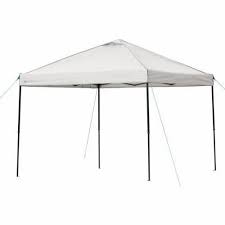Proprietary trading firms, often called “prop trading firm,” have become a sought-after avenue for ambitious traders aiming to leverage the firm’s capital while keeping a portion of the profits. However, thriving in this high-paced, competitive environment isn’t just about luck or even skill alone; it requires strategy, discipline, and sharp decision-making. Here, we explore some of the best strategies to help you excel at a prop trading firm.
Understand the Firm’s Culture and Tools
Each prop trading firm has its unique culture, trading philosophy, and set of tools. Before anything else, invest time in understanding the firm’s operations, goals, and expectations from its traders. Are they focused on algorithmic trading? Do they emphasize swing trading or day trading? Get familiar with their technology stack, as proprietary software is often core to success. Knowledge of the tools at your disposal gives you a solid foundation for effective trading.
Prioritize Risk Management
One of the cardinal rules in prop trading is preserving capital. Firms allocate significant amounts of money to their traders, but it’s your responsibility to manage that capital wisely. Establish clear position-sizing rules and place stop-loss orders to minimize potential losses on trades. For example, many firms suggest risking no more than 1-2% of total allocated capital per trade. Effective risk management ensures you can survive a string of losses and continue trading.
Develop a Trading Edge
The best traders consistently thrive because they identify and leverage a unique edge, which sets them apart from others. This could be a specific trading strategy, like arbitrage, momentum trading, or market-making. To develop your edge, analyze your trading data frequently, spot trends in past successes, and refine your strategy to maximize chances of profitability. A well-defined edge is often the bedrock of sustainable success in prop trading.
Adapt Quickly and Stay Flexible
Markets are constantly changing. Economic events, geopolitical developments, and technological disruptions can cause sudden market shifts, forcing traders to adjust their strategies on the fly. Being adaptable is critical. For instance, if a particular strategy stops yielding results, be prepared to test alternate approaches. Flexibility doesn’t mean abandoning sound practices, but it does mean evolving with the market to stay relevant.
Commit to Continuous Learning
The financial markets are intricate and ever-changing. Successful traders make learning an ongoing process. Stay updated on technical analysis, new financial instruments, and economics. Pay attention to key indicators like moving averages, volumes, and trendlines. Additionally, learn from seasoned traders in your firm. Some firms even offer mentorship programs, which can be immensely beneficial for refining your skills.
Keep Your Emotional Discipline in Check
Trading in a prop firm can be an emotional rollercoaster. Winning streaks can tempt you into overconfidence, while losses can lead to frustration or impulsivity. Practice the art of maintaining emotional balance to make objective decisions based on data and strategy instead of fear or greed. Techniques like journaling your trades or meditating before trading sessions can help you stay in control.
Final Thoughts
Succeeding in a prop trading firm takes more than market knowledge; it demands discipline, adaptability, and a relentless pursuit of improvement. By emphasizing risk management, cultivating a trading edge, and staying emotionally grounded, you’ll not only increase your chances of success but also position yourself as a valuable asset within your firm.


